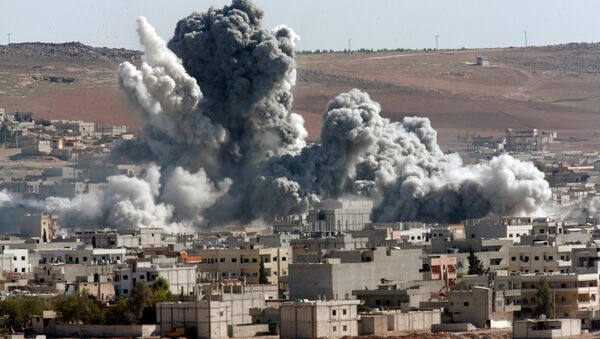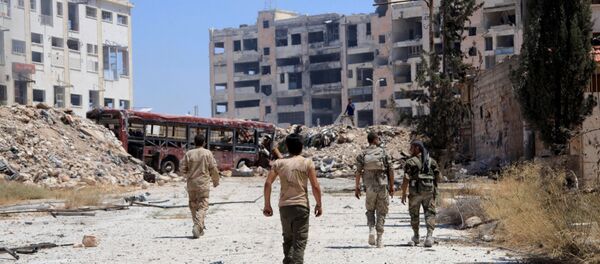In exchange, US Secretary of State John Kerry promised to pressure on the Syrian opposition, while Russia should do the same, urging similar restraint from Damascus.
"Their policy is an across-the-board failure, primarily because they have no clear-cut action plan to act upon, while Russia’s goals are clear, just like the means of achieving them – the Aerospace Forces, the Syrian Army and the negotiating process. Our [Western] ‘colleagues’ are simply jealous of Russia’s successes,” Ivan Konovalov said.
Russian and Syrian military authorities have established a number of humanitarian corridors around Aleppo for civilians and terrorist fighters willing to surrender as part of a humanitarian operation launched on July 28.
"Killing everyone is exactly what al-Nusra, Daesh and their allied militant groups the Americans describe as ‘moderate opposition’ really want, and the recent downing of the Russian helicopter proved what this so-called ‘moderate opposition’ is all about,” Ivan Konovalov told Sputnik.
He said the US calls for Russia and Damascus to refrain from any further advances against the terrorist forces stemmed from Washington’s desire to prevent these forces from taking Aleppo, which would change the course of the war in Syria.
“If Aleppo falls, this would deal a serious blow to Turkey, which had supported these terrorists groups. This would also mean the complete failure of the Americans’ plans to influence the situation in Syria,” Ivan Konovalov said in conclusion.
Russian Defense Minister Sergei Shoigu said last week that Moscow and Damascus had launched a large-scale humanitarian operation in Aleppo, opening three escape routes for civilians and one for militants wishing to lay down arms.
At the present time the center of Aleppo is controlled by Syrian government forces, while some 250,000 civilians are feared to be trapped in the rebel-held eastern districts of the city.
Meanwhile, fighting has intensified in the contested city in the past few days as jihadist militants mounted an offensive to break through government cordons.



